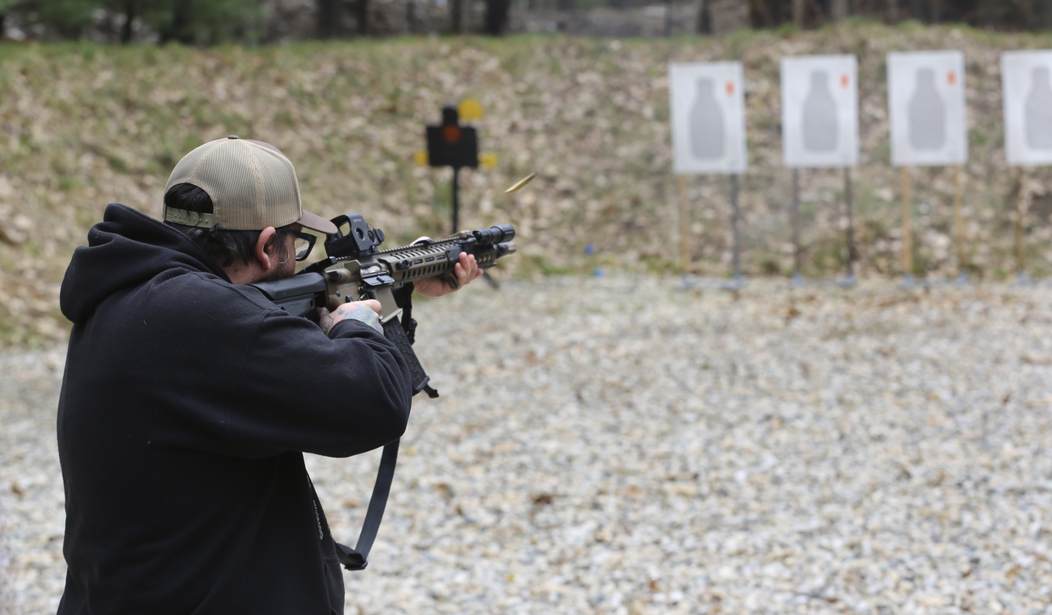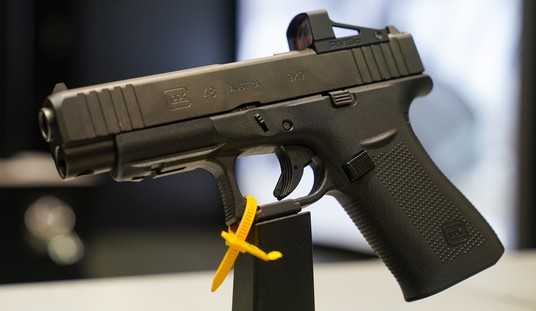In recent months, there's been talk about the federal government selling a significant portion of the public land it currently controls. Out west, it holds a massive percentage of land in many states.
Considering there's a massive amount of federal debt, the idea has been presented to sell at least some of that land to raise money to pay off the debt owed.
There's a certain intelligence to the idea. Selling off assets is how a lot of us cover debt and other expenses, so it's not a ridiculous concept at first glance.
Yet there's a side that we also need to consider, and that's how it may impact the Second Amendment.
That's something that Second Amendment attorney Kostas Moros brought up on X Tuesday.
Selling public lands is a terrible idea that will harm recreational shooting, among other things.
— Kostas Moros (@MorosKostas) June 17, 2025
It's also the exact sort of painful choice we are going to see more and more of in the coming years and decades. As a country with a mountain of debt, we will need to find ways to…
Post continues:
...we will need to find ways to pay for our addiction to costly entitlements
People really need to better grasp what is causing our eventual debt crisis. It isn't the military. It isn't "tax cuts for the rich."
— Kostas Moros (@MorosKostas) June 17, 2025
It is medicare and social security, plus the interest on the debt. If the entitlements didn't exist, we'd be running a big surplus. pic.twitter.com/CLekUmqJTn
Now, we're not going to get into things like entitlements here because it's not what we do. We have sister sites that handle that sort of thing.
But let's talk about the impact this may have on recreational shooting.
A lot of people see that term and think, understandably, that it's purely recreational. For some, it is. Shooting is fun. It's pretty cool to hone your skills and hit what you're aiming at. It's downright empowering to develop skills that allow you to do something like that.
It's a key part of why many people own guns. Sure, they might buy them for self-defense, but they keep buying them because they're cool and they enjoy shooting them.
If they lose access to the places they go to shoot, though, they might not take those next steps and buy additional guns, which could hurt the gun industry as a whole.
But it's not just recreation. It's practice.
Shooting is a perishable skill, and marksmanship is the essential foundation for any other kind of firearm training. It doesn't matter what you learned at your super-advanced concealed carry course if you can't actually hit the target.
Take that away, and people aren't going to go for those classes. They're not going to take that training.
Of course, how does this impact the Second Amendment?
The answer is pretty simple. All of it undermines it.
If people aren't buying guns, we might lose the ability to buy much of anything as companies shut down or just stop trying to produce for the civilian market. You don't need gun control if there aren't any guns.
Failure to have access to places to shoot may deter many from getting a gun in the first place. Even if it's for self-defense, if they're not confident they can acquire the skills to be proficient with a firearm, they may look at alternative tools for that purpose. That also means that since they're not gun owners, they might not be nearly as concerned with protecting the right to keep and bear arms.
"Then just use private ranges," some might say.
The problem is that private ranges aren't everywhere, for one thing. The longer the drive to get to one, the less likely someone is to view it as an option. I was a member of a private range once upon a time, and I almost never used my membership. I hit a public range that was much closer unless I wanted to do something that was forbidden at that range.
Further, some private ranges have been embattled in recent years by residents who want to shut them down. They don't like the noise from the range, among other issues. Sure, suppressors would address that to some degree, but that doesn't mean the problem would go away.
Public land tends to be big enough and far enough out that no one hears anything. There are no complaints about people shooting.
Now, my public range is state-owned, so it wouldn't fall into this, but other people are relegated to just shooting on federal land, and that's less than idea for them should we start liquidating that land.
As it stands, ranges are enough of an endangered species that we need to defend the ones we have long and hard.








Join the conversation as a VIP Member